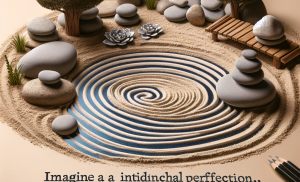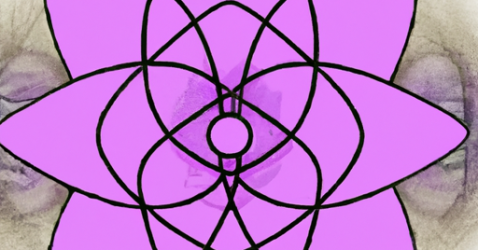Exploring Spirituality: Diverse Paths To Inner Peace
Have you ever wondered how people from different backgrounds and cultures find inner peace? In “Exploring Spirituality: Diverse Paths to Inner Peace,” we embark on a captivating journey, exploring the various ways individuals discover harmony within themselves. Uncover the secrets of spirituality as we unveil the diverse and unique paths that lead to tranquility, offering a glimpse into the rich tapestry of beliefs and practices that contribute to a more peaceful existence. Whether it’s through meditation, prayer, or connecting with nature, join us as we delve into the endless possibilities of finding inner peace.
The Importance of Exploring Spirituality
Being human means constantly searching for meaning and purpose in our lives. While many individuals seek fulfillment in material possessions or external achievements, there is a growing recognition of the importance of exploring spirituality as a means to finding inner peace. Spirituality, in its essence, is the search for deeper understanding and connection with something greater than ourselves. It is a journey that can take different paths, leading to a richer and more fulfilling existence.
Recognizing the search for inner peace
As you navigate through the ups and downs of life, you may find yourself yearning for a sense of tranquility and serenity. This desire for inner peace is a universal human longing, and it is often the driving force behind the exploration of spirituality. Rather than relying solely on external circumstances or achievements to bring happiness, spirituality offers a pathway to finding lasting contentment and fulfillment within yourself.
Understanding the meaning of spirituality
Before delving into the various traditions and practices of spirituality, it is essential to grasp the essence of what spirituality truly means. While religion and spirituality are often used interchangeably, they are not synonymous. Spirituality refers to the personal, subjective experience of seeking connection with something greater than oneself, while religion involves a set of organized beliefs and practices within a specific faith tradition. Spirituality, therefore, provides a broader and more inclusive perspective for individuals on their quest for inner peace.
Eastern Traditions
The wisdom and teachings of Eastern traditions have long offered profound insights into the realm of spirituality. From ancient civilizations to modern times, practices such as Hinduism, Buddhism, and Taoism have provided pathways to transcendence and self-discovery.
Hinduism
Hinduism, one of the oldest religions in the world, encompasses a rich tapestry of spiritual practices and beliefs. Central to Hinduism is the concept of Dharma, which refers to one’s duty or moral obligations. Through practices like yoga, meditation, and devotion to deities, Hindu spirituality seeks to cultivate a sense of inner harmony and connection with the divine.
Buddhism
Buddhism, founded by Siddhartha Gautama, encourages individuals to embark on a journey of self-discovery and the cessation of suffering. The Four Noble Truths and the Eightfold Path are fundamental teachings in Buddhism, emphasizing the importance of mindfulness, meditation, and compassion. By embracing these principles, individuals can attain enlightenment and liberation from the cycle of birth and death.
Taoism
Taoism, originating from ancient China, revolves around the idea of harmonious living in alignment with the flow of nature. The Tao, often translated as “The Way,” is the guiding principle of Taoism. Through practices such as meditation, Tai Chi, and Qi Gong, Taoism encourages individuals to cultivate balance, simplicity, and spontaneity in their lives, fostering a deeper connection with the natural world.
Western Traditions
While Eastern traditions have greatly influenced the exploration of spirituality, Western traditions have also played a significant role in shaping spiritual paths towards inner peace. Christianity, Islam, and Judaism, each with their unique beliefs and practices, offer diverse avenues for individuals seeking spiritual connection.
Christianity
Christianity, one of the most widely practiced religions in the world, emphasizes the importance of faith and the teachings of Jesus Christ. Through prayer, worship, and participation in religious sacraments, Christians seek spiritual growth and salvation. The Christian community provides a supportive environment for believers to deepen their connection with God and find solace in times of distress.
Islam
Islam, founded by the Prophet Muhammad, centers around the submission to the will of Allah. The Five Pillars of Islam, including prayer, fasting, pilgrimage, charity, and the declaration of faith, guide Muslims in their spiritual journey. Through these practices, individuals develop a sense of connection with Allah and strive for spiritual purification and enlightenment.
Judaism
Judaism, one of the oldest monotheistic religions, places a strong emphasis on the covenant between God and the Jewish people. Jewish spirituality involves observance of commandments, rituals, and ceremonies that connect individuals to their heritage and values. Through prayer, study, and acts of kindness, Jews seek to deepen their relationship with God and find meaning in their lives.
Indigenous Spiritual Practices
Indigenous spiritual practices, deeply rooted in the traditions and customs of various cultures around the world, offer unique perspectives on spirituality. These practices highlight the interconnectedness between humans, nature, and the spiritual realm.
Native American spirituality
Native American spirituality is characterized by a profound reverence for the Earth and a deep connection with the natural world. Practices such as vision quests, sweat lodge ceremonies, and smudging rituals are utilized to foster spiritual growth, healing, and guidance. The wisdom of Native American spirituality emphasizes the importance of living in harmony with all living beings and respecting the sacredness of the land.
Australian Aboriginal spirituality
Australia’s indigenous people, the Aboriginals, possess a spirituality deeply intertwined with the land, known as Country. Dreamtime stories, art, dance, and rituals are integral to Aboriginal spirituality. Through these practices, individuals gain a sense of belonging, ancestral connection, and an understanding of the spiritual significance of the land they inhabit.
African traditional religions
African traditional religions encompass a wide array of beliefs and practices across different ethnic groups. These religions often emphasize the interconnectedness between humans, ancestors, and spirits of nature. Rituals, ceremonies, and divination practices are integral to African spiritual traditions, fostering a deep sense of community, harmony, and reverence for the spiritual world.
New Age and Alternative Spirituality
In recent times, the rise of new age and alternative spirituality movements has provided individuals with additional avenues for exploring spirituality and finding inner peace. These practices often draw inspiration from Eastern traditions, indigenous spirituality, and esoteric teachings.
Meditation and mindfulness
Meditation and mindfulness practices have gained immense popularity in the modern world as tools for self-reflection, stress reduction, and spiritual growth. Through the cultivation of present moment awareness and the stilling of the mind, individuals can develop a deeper connection with themselves and the world around them.
Yoga
Yoga, originating from ancient India, combines physical postures, breathwork, and meditation to promote physical, mental, and spiritual well-being. As a holistic system, yoga offers a pathway for individuals to cultivate strength, flexibility, and a deeper connection with their bodies and minds.
Energy healing practices
Energy healing practices, such as Reiki, acupuncture, and crystal therapy, focus on balancing the subtle energy systems within the body. By harnessing and directing energy, practitioners aim to promote healing and restore energetic balance, fostering a sense of inner peace and well-being.
Spirituality Through Connection with Nature
Nature has long been recognized as a source of spiritual inspiration and a pathway to inner peace. Various spiritual traditions and practices highlight the importance of connecting with the natural world.
Ecospirituality
Ecospirituality, also known as environmental spirituality, emphasizes the interconnectedness between humans and the natural environment. It recognizes the sacredness of nature and advocates for sustainable living practices that honor and protect the Earth.
Shinrin-yoku (Forest bathing)
Shinrin-yoku, a practice originating from Japan, involves immersing oneself in nature and connecting with the healing power of the forest. Scientific studies have shown the numerous health benefits of forest bathing, including stress reduction, improved mood, and enhanced immunity.
Animal and plant-based spirituality
Many spiritual traditions incorporate the wisdom and symbolism of animals and plants as a means of connecting with the spiritual realm. Animal totems, herbal remedies, and sacred rituals involving plants serve as gateways to deeper spiritual understanding and connection.
Spirituality in Everyday Life
Spirituality does not exist solely within religious or ceremonial contexts. It can be integrated into everyday life through various practices and activities that foster self-reflection, gratitude, and connection with the divine.
Prayer and rituals
Prayer and rituals offer individuals a means to commune with the divine and express their innermost desires, hopes, and fears. Whether through organized religious practices or personalized ceremonies, these acts provide a sense of peace, solace, and guidance.
Gratitude practices
Cultivating a sense of gratitude is a powerful spiritual practice that can shift one’s perspective and invite more positivity into life. By actively acknowledging and appreciating the blessings and abundance in one’s life, individuals can experience greater contentment and a deeper connection with the divine.
Journaling and self-reflection
Engaging in journaling and self-reflection allows individuals to explore their thoughts, emotions, and experiences on a deeper level. Through the practice of introspection, individuals can gain insights into their spiritual journey, cultivate self-awareness, and foster personal growth.
The Role of Community and Relationships
Spirituality is often nourished and enhanced through connections with others. The presence of like-minded individuals, mentors, and supportive communities can be instrumental in deepening one’s spiritual journey.
Religious congregations
Religious congregations provide a sense of belonging, support, and guidance for individuals seeking spiritual connection within a specific faith tradition. Being part of a religious community allows individuals to engage in shared rituals, worship, and service, fostering a sense of fellowship and unity.
Sanghas and spiritual communities
Sanghas, or spiritual communities, are commonly found in Buddhist and other Eastern traditions. These communities serve as a supportive environment for individuals to come together for meditation, study, and discussions, providing guidance and collective wisdom along the spiritual path.
Support groups and spiritual mentors
Support groups and spiritual mentors play a crucial role in providing guidance, encouragement, and accountability on one’s spiritual journey. Whether in the form of therapy, counseling, or mentorship, these relationships offer a safe space to explore personal challenges, deepen understanding, and receive support.
Spirituality and Mind-Body Connection
The mind and body are intricately linked, and spirituality can play a significant role in enhancing overall well-being and promoting a sense of wholeness.
Yoga and tai chi
Yoga and tai chi are practices that integrate physical movement, breathwork, and meditation to harmonize the mind and body. These disciplines not only promote physical health but also enhance mental clarity, emotional balance, and spiritual connection.
Breathing exercises and pranayama
Conscious breathwork and pranayama techniques have been utilized in various spiritual traditions to cultivate awareness and tap into the life force energy within. By regulating the breath, individuals can calm the mind, release tension, and awaken their spiritual essence.
Alternative medicine and spirituality
Many alternative healing modalities, such as acupuncture, homeopathy, and herbal medicine, recognize the interconnectedness between the physical, mental, emotional, and spiritual aspects of an individual. By addressing imbalances on multiple levels, these practices offer holistic approaches to healing and well-being.
Conclusion
Exploring spirituality is a deeply personal journey that can lead to the discovery of inner peace and a profound connection with something greater than oneself. Whether through traditional religious practices, alternative spiritual paths, or a combination of both, each individual has the opportunity to find their unique way towards fulfillment and tranquility. Embrace the diversity of spiritual traditions and practices, and allow yourself to embark on a path that resonates with your heart and soul. May your exploration of spirituality be a source of inspiration, growth, and profound inner peace.

















